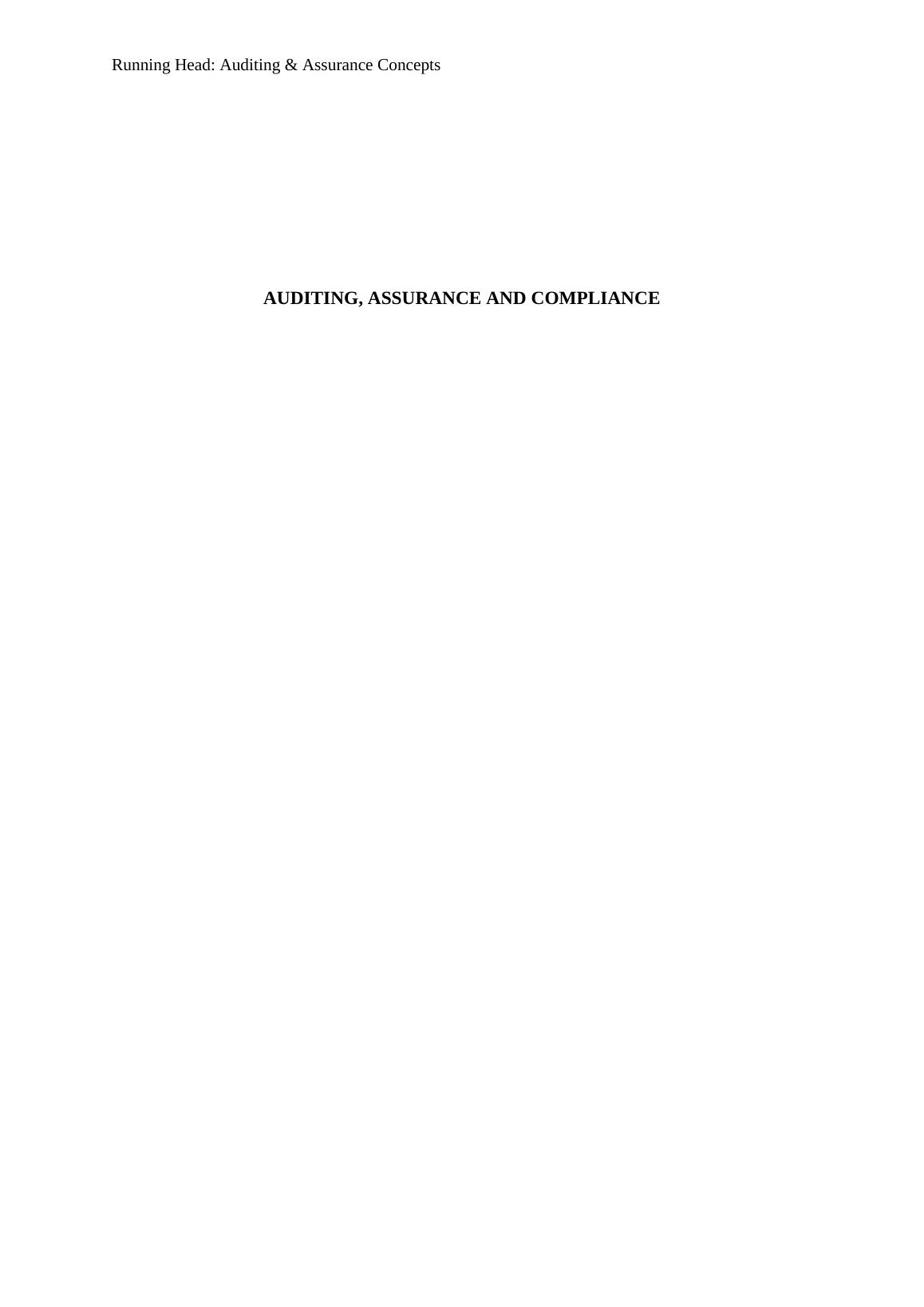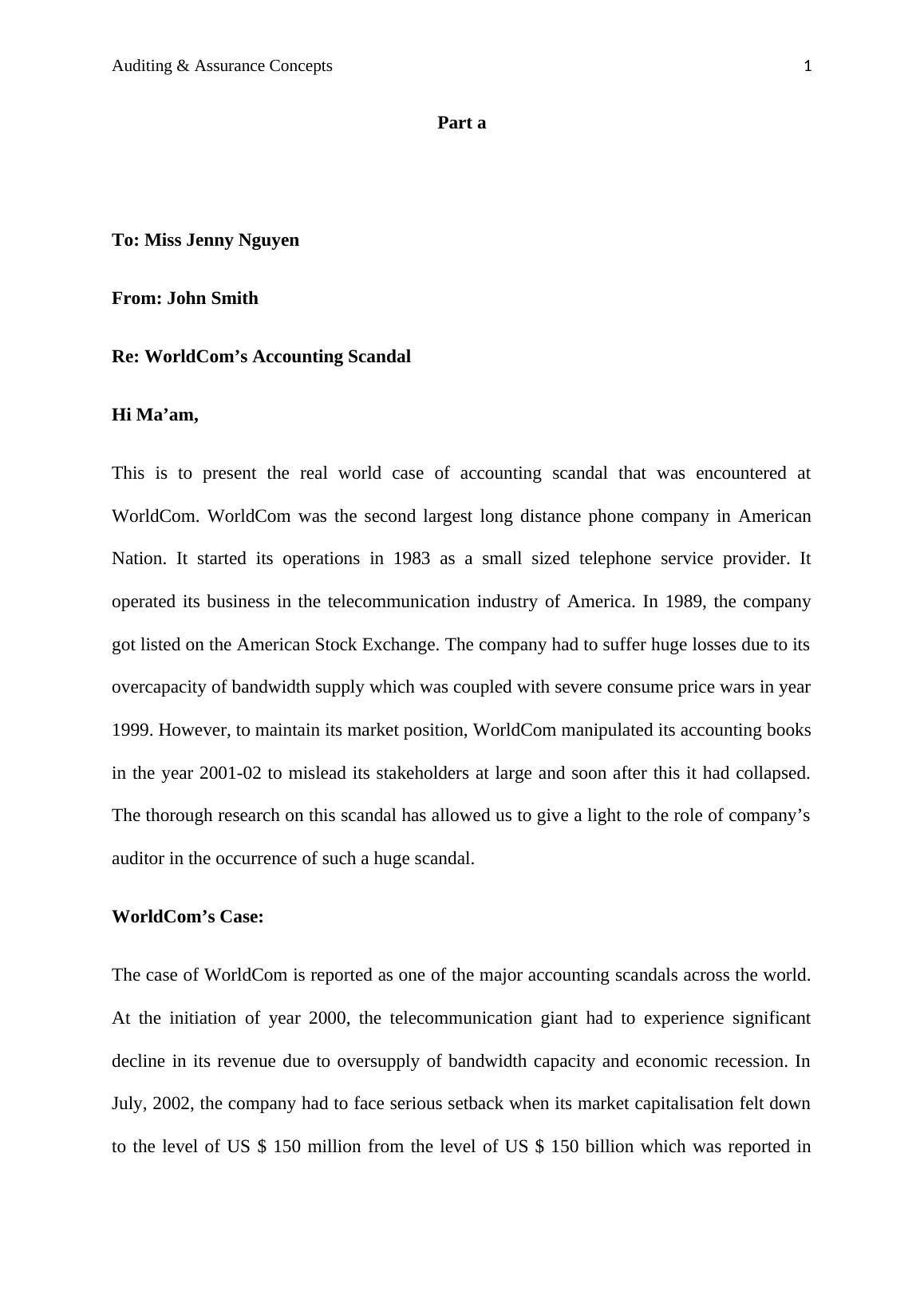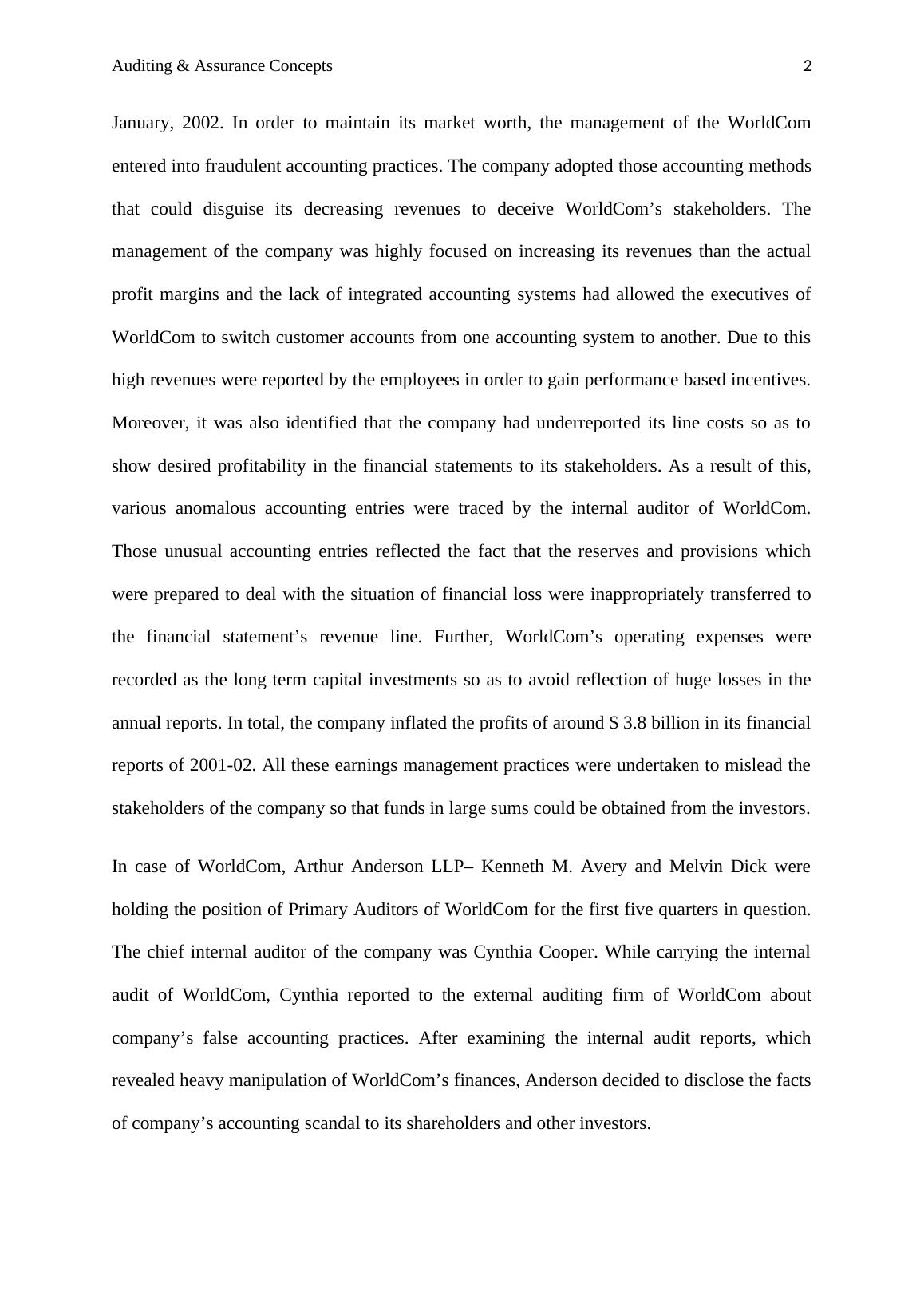Auditing & Assurance Concepts
10 Pages2567 Words331 Views
Added on 2023-06-06
About This Document
This article discusses the accounting scandal at WorldCom and the role of auditors in it. It also explains the importance of teamwork in business organizations. The article is divided into two parts, with the first part presenting a real-world case of accounting scandal at WorldCom, and the second part discussing the experience of the author while working on a group assignment related to auditing. The article provides insights into the importance of professional scepticism, internal controls, and corporate governance in auditing. It also highlights the significance of teamwork in achieving organizational goals.
Auditing & Assurance Concepts
Added on 2023-06-06
ShareRelated Documents
End of preview
Want to access all the pages? Upload your documents or become a member.
Financial Accounting | Report (Doc)
|6
|938
|54
WorldCom’s Case of Accounting Fraud - Accounting Scandals
|3
|508
|344
WorldCom Collapse: Analysis of Causes and Threats to Audit Quality
|9
|2489
|147
Enron Scandal: Fraud, Bankruptcy, and Impact on Corporate Governance
|8
|1915
|86
Collapse of WorldCom: Auditing Failures and Corporate Governance
|10
|2752
|30
Investigation Report: WorldCom Accounting Scandal
|10
|2187
|32



